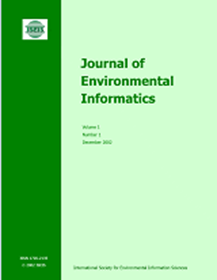Detecting Spatiotemporal Features of Phosphorus Concentrations Using MODIS Images: A Case Study of Hongze Lake, China
IF 5.4
1区 环境科学与生态学
Q1 ENVIRONMENTAL SCIENCES
引用次数: 1
基于MODIS影像的磷浓度时空特征检测——以洪泽湖为例
本文章由计算机程序翻译,如有差异,请以英文原文为准。
求助全文
约1分钟内获得全文
求助全文
来源期刊

Journal of Environmental Informatics
ENVIRONMENTAL SCIENCES-
CiteScore
12.40
自引率
2.90%
发文量
7
审稿时长
24 months
期刊介绍:
Journal of Environmental Informatics (JEI) is an international, peer-reviewed, and interdisciplinary publication designed to foster research innovation and discovery on basic science and information technology for addressing various environmental problems. The journal aims to motivate and enhance the integration of science and technology to help develop sustainable solutions that are consensus-oriented, risk-informed, scientifically-based and cost-effective. JEI serves researchers, educators and practitioners who are interested in theoretical and/or applied aspects of environmental science, regardless of disciplinary boundaries. The topics addressed by the journal include:
- Planning of energy, environmental and ecological management systems
- Simulation, optimization and Environmental decision support
- Environmental geomatics - GIS, RS and other spatial information technologies
- Informatics for environmental chemistry and biochemistry
- Environmental applications of functional materials
- Environmental phenomena at atomic, molecular and macromolecular scales
- Modeling of chemical, biological and environmental processes
- Modeling of biotechnological systems for enhanced pollution mitigation
- Computer graphics and visualization for environmental decision support
- Artificial intelligence and expert systems for environmental applications
- Environmental statistics and risk analysis
- Climate modeling, downscaling, impact assessment, and adaptation planning
- Other areas of environmental systems science and information technology.
 求助内容:
求助内容: 应助结果提醒方式:
应助结果提醒方式:


